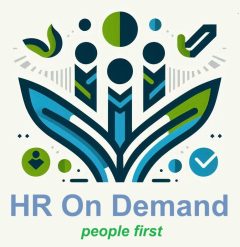Employee Engagement Tools: Transforming Workplace Dynamics in the Modern Era
Understanding the Critical Role of Employee Engagement in Today’s Business Landscape
In the rapidly evolving world of human resources, employee engagement has emerged as a pivotal factor in organizational success. Companies that prioritize meaningful engagement strategies can unlock unprecedented levels of productivity, innovation, and workforce retention.
The Changing Paradigm of Workplace Interaction
Modern human resources tools have revolutionized how organizations approach employee engagement. Gone are the days of traditional, one-dimensional communication methods. Today’s sophisticated platforms enable dynamic, continuous, and personalized interactions that resonate with employees across diverse generational and professional backgrounds.
Key Components of Effective Employee Engagement Tools
1. Real-Time Feedback Mechanisms
Contemporary engagement platforms provide instantaneous feedback channels that allow employees to share insights, concerns, and suggestions directly with leadership. These tools create transparent communication pathways, fostering a culture of openness and mutual respect.
Statistics reveal that organizations with robust feedback mechanisms experience:
– 14.9% lower turnover rates
– 30% higher team productivity
– Enhanced employee satisfaction scores

2. Performance Recognition Systems
Advanced human resources tools now incorporate sophisticated recognition platforms that go beyond traditional annual reviews. These systems enable:
– Peer-to-peer recognition
– Immediate performance acknowledgment
– Customizable reward structures
– Data-driven performance tracking
3. Collaborative Digital Workspaces
Modern engagement tools integrate seamlessly with digital collaboration platforms, creating interconnected work environments that transcend physical boundaries. These platforms support:
– Real-time project management
– Cross-departmental communication
– Knowledge sharing
– Remote team integration
Technology-Driven Engagement Strategies
Artificial Intelligence and Machine Learning have transformed employee engagement tools, offering unprecedented insights into workforce dynamics. These technologies enable:
– Predictive employee sentiment analysis
– Personalized development recommendations
– Targeted intervention strategies
– Comprehensive workforce analytics
Implementation Considerations
When selecting and implementing employee engagement tools, organizations should consider:
– Scalability
– User-friendly interfaces
– Integration capabilities
– Data security and privacy
– Customization options
“Employee engagement is not a one-time initiative, but a continuous strategic commitment.” – HR Innovation Quarterly
Measuring Engagement Effectiveness
Successful implementation requires robust measurement frameworks. Key performance indicators include:
– Employee Net Promoter Score (eNPS)
– Retention rates
– Productivity metrics
– Employee satisfaction surveys
– Internal mobility rates
Emerging Trends in Engagement Tools
1. Personalization Technologies
Next-generation tools leverage advanced algorithms to create highly individualized employee experiences, recognizing unique professional aspirations and personal preferences.
2. Holistic Well-being Platforms
Modern engagement tools increasingly incorporate mental health support, wellness tracking, and comprehensive lifestyle management features.
3. Gamification Elements
Interactive, game-like features are being integrated to enhance motivation, learning, and participation across organizational levels.
Potential Challenges and Mitigation Strategies
While employee engagement tools offer tremendous potential, organizations must navigate potential implementation challenges:
– Ensuring genuine, non-invasive technological integration
– Maintaining human connection amid digital interactions
– Addressing potential privacy concerns
– Providing comprehensive training and support
Best Practices for Successful Implementation
1. Conduct thorough needs assessments
2. Involve employees in tool selection processes
3. Provide comprehensive training
4. Maintain transparent communication
5. Continuously evaluate and adapt tools
Cost-Benefit Analysis
Investing in sophisticated employee engagement tools demonstrates significant return on investment:
– Reduced recruitment costs
– Enhanced productivity
– Improved organizational reputation
– Higher employee retention rates
Conclusion
Employee engagement tools represent more than technological solutions—they are strategic assets that fundamentally transform workplace dynamics. By embracing innovative platforms and maintaining a people-centric approach, organizations can create thriving, adaptive, and high-performing work environments.
As the business landscape continues to evolve, those who master the art of meaningful employee engagement will undoubtedly lead their industries.





